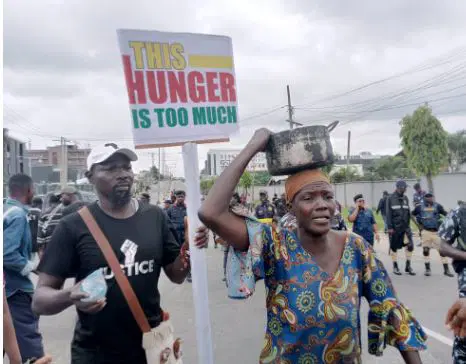Africa
Canceling the Democracy Day Broadcast — Is This Democracy or Dictatorship in Disguise? -By Beauty Samaila
In short, the cancellation of the national Democracy Day broadcast is a seemingly modest action, but one of momentous implications. It is high testimony to the Tinubu regime’s regard for democratic norms and the First Amendment. If democracy is “government of the people,” then the people cannot be excluded — especially on a day set aside to honor them. Anything less begins to look more like not democracy, but dictator in disguise.

Cancellation of the usual countrywide broadcast by President Bola Tinubu on Democracy Day 2025 is an ominous sign of the absence of transparency, respect for tradition, and authentic democratic communication. For a day of celebration of 26 years of unbroken Nigerian democracy, skipping direct address to the people through a presidential broadcast conveys an unsettling message. A simple schedule change? Or a subtle retreat from the very democratic values being touted?
Tradition, continuity, and responsibility are the pillars on which democracy stands. Since then, the presidential Democracy Day speech has become a symbolic and inclusive ceremony — an opportunity for all Nigerians from across the land, regardless of social class and background, to hear directly from their elected leader. It is not merely a speech; it is a renewal of the social contract between government and the people. To abruptly cancel such a ritual in the name of taking on just the National Assembly is to disempower that bond and leave the rest of the populace in ignorance.
The justifications for the move will be that the president will still be speaking to the public, but in a different arena. The National Assembly speech is an elite, closed forum, however. In contrast to a national broadcast, which may reach market women, students, laborers, and farmers alike — it is accessible to all — an Assembly speech is largely targeted for legislators and ambassadors. It is more directed to a political audience than to democratic constituencies, leaving the issue of to whom the president will eventually answer.
In a functioning democracy, appearance is reality. Democracy Day needs to project transparency, citizen participation, and symbolic unity. If the presidency can unilaterally cancel a practice of speaking directly to the nation, what does that say? That the administration can redefine democratic norms with impunity? That the people’s right to direct access from their president is expendable? This is a trend of keeping the public out in critical moments becoming more and more comfortable with authoritarianism — where the leader only speaks when, where, and to whom he pleases.
What’s so disturbing is that this change was made public without first having a national dialogue about it or explanation for anything other than a scheduling conflict. Emergencies do necessitate adjustments, sure. But this was no emergency — it was a considered reshuffling. And when democratic expression-related traditions are taken lightly, they erode public trust and inflame suspicions of government callousness or avoidance of accountability.
In short, the cancellation of the national Democracy Day broadcast is a seemingly modest action, but one of momentous implications. It is high testimony to the Tinubu regime’s regard for democratic norms and the First Amendment. If democracy is “government of the people,” then the people cannot be excluded — especially on a day set aside to honor them. Anything less begins to look more like not democracy, but dictator in disguise.
Beauty Samaila
08127893023

























